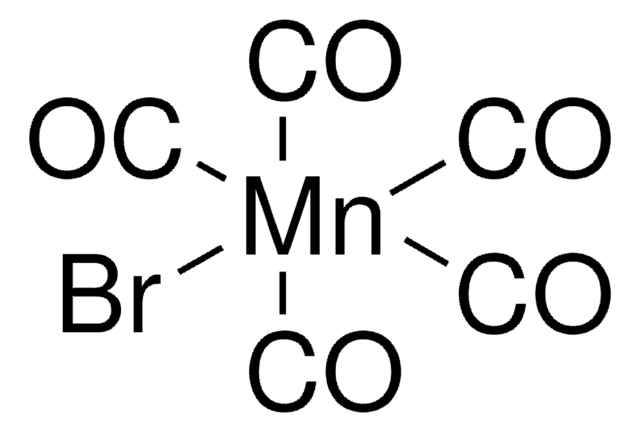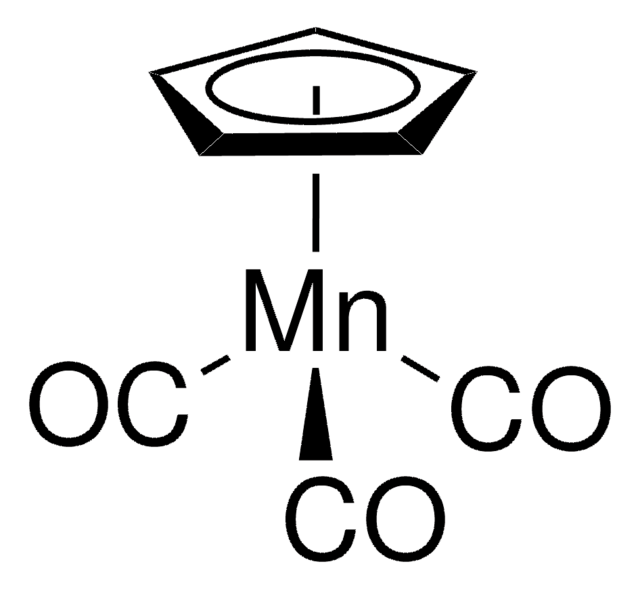327611
Pentacarbonylchlororhenium(I)
98%
Synonym(s):
Rhenium(I) pentacarbonyl chloride
About This Item
Recommended Products
Assay
98%
reaction suitability
core: rhenium
reagent type: catalyst
SMILES string
Cl[Re].[C-]#[O+].[C-]#[O+].[C-]#[O+].[C-]#[O+].[C-]#[O+]
InChI
1S/5CO.ClH.Re/c5*1-2;;/h;;;;;1H;/q;;;;;;+1/p-1
InChI key
JQUUAHKBIXPQAP-UHFFFAOYSA-M
Application
Other Notes
Signal Word
Danger
Hazard Statements
Precautionary Statements
Hazard Classifications
Acute Tox. 3 Oral - Eye Irrit. 2 - Skin Irrit. 2 - STOT SE 3
Target Organs
Respiratory system
Storage Class Code
6.1C - Combustible acute toxic Cat.3 / toxic compounds or compounds which causing chronic effects
WGK
WGK 3
Personal Protective Equipment
Certificates of Analysis (COA)
Search for Certificates of Analysis (COA) by entering the products Lot/Batch Number. Lot and Batch Numbers can be found on a product’s label following the words ‘Lot’ or ‘Batch’.
Already Own This Product?
Find documentation for the products that you have recently purchased in the Document Library.
Customers Also Viewed
Our team of scientists has experience in all areas of research including Life Science, Material Science, Chemical Synthesis, Chromatography, Analytical and many others.
Contact Technical Service













